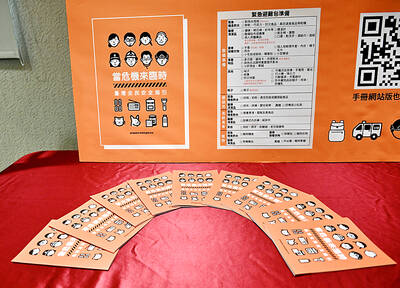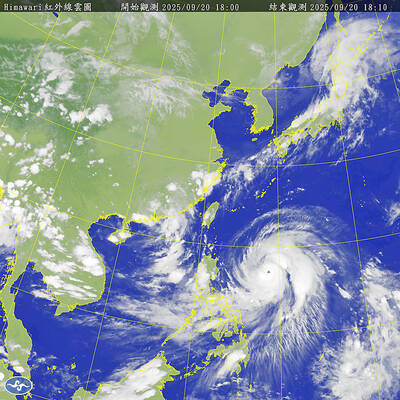Exports to the US last month began to show signs of slowing as a result of the US subprime crisis, a Finance Ministry official said yesterday.
"Taiwan's exports to the US declined by 1 percent in January, mainly because of a slowdown in demand as a result of the subprime crisis in the US market," said Hsu Ray-lin (
Exports grew 11.9 percent year-on-year to US$22.14 billion last month, while imports increased by 14.8 percent to US$20.61 billion, Ministry of Finance statistics showed.
The trade surplus fell 16.5 percent to US$1.53 billion as import growth outpaced that of exports, Hsu said.
Hsu said that strong growth in imports of durable goods was a good sign that the economy is healthy and still expanding. Imports of electrical machinery and precision machinery increased by 56.4 percent and 39.6 percent respectively.
Although Taiwan continued to enjoy stable growth in exports to ASEAN countries, China and Hong Kong and Europe, the pace was slower than in December.
Taiwan enjoyed 14.6 percent and 19.3 percent growth in exports to China and ASEAN countries respectively, while exports to Europe increased by 7 percent.
Exports to the Middle East saw a triple-digit increase last month.
Hsu said that the strong demand in emerging markets would hopefully offset the decline in the US market.
"The slowdown is just beginning to unfold and will gradually affect the demand in the emerging markets," Standard Chartered Bank economist Tony Phoo (
He said an unexpected drop in the US Institute of Supply Management services sector index indicated that the subprime crisis had expanded and caused the sector to shrink.
Hsu Kuo-an (徐國安), a Capital Securities (群益證券) analyst, said that the nation's export growth would likely be sluggish this month because of the Lunar New Year holidays.

One of two tropical depressions that formed off Taiwan yesterday morning could turn into a moderate typhoon by the weekend, the Central Weather Administration (CWA) said yesterday. Tropical Depression No. 21 formed at 8am about 1,850km off the southeast coast, CWA forecaster Lee Meng-hsuan (李孟軒) said. The weather system is expected to move northwest as it builds momentum, possibly intensifying this weekend into a typhoon, which would be called Mitag, Lee said. The radius of the storm is expected to reach almost 200km, she said. It is forecast to approach the southeast of Taiwan on Monday next week and pass through the Bashi Channel

The number of Chinese spouses applying for dependent residency as well as long-term residency in Taiwan has decreased, the Mainland Affairs Council said yesterday, adding that the reduction of Chinese spouses staying or living in Taiwan is only one facet reflecting the general decrease in the number of people willing to get married in Taiwan. The number of Chinese spouses applying for dependent residency last year was 7,123, down by 2,931, or 29.15 percent, from the previous year. The same census showed that the number of Chinese spouses applying for long-term residency and receiving approval last year stood at 2,973, down 1,520,

EASING ANXIETY: The new guide includes a section encouraging people to discuss the threat of war with their children and teach them how to recognize disinformation The Ministry of National Defense’s All-Out Defense Mobilization Agency yesterday released its updated civil defense handbook, which defines the types of potential military aggression by an “enemy state” and self-protection tips in such scenarios. The agency has released three editions of the handbook since 2022, covering information from the preparation of go-bags to survival tips during natural disasters and war. Compared with the previous edition, released in 2023, the latest version has a clearer focus on wartime scenarios. It includes a section outlining six types of potential military threats Taiwan could face, including destruction of critical infrastructure and most undersea cables, resulting in

The Central Weather Administration (CWA) yesterday said that it expected to issue a sea warning for Typhoon Ragasa this morning and a land warning at night as it approached Taiwan. Ragasa intensified from a tropical storm into a typhoon at 8am yesterday, the CWA said, adding that at 2pm, it was about 1,110km east-southeast of Oluanpi (鵝鑾鼻), Taiwan’s southernmost tip. The typhoon was moving northwest at 13kph, with sustained winds of up to 119kph and gusts reaching 155kph, the CWA Web site showed. Forecaster Liu Pei-teng (劉沛滕) said that Ragasa was projected to strengthen as it neared the Bashi Channel, with its 200km